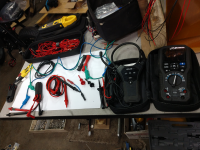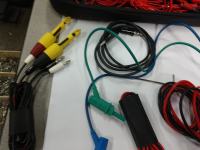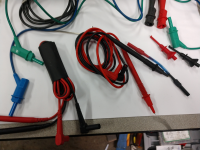A post, just so it may be helpful for someone in the future......
After spending MANY long hours trying to find why my new controller (KT Sine) was throwing an error (motor position sensor fault on a KT LCD8 display) when being checked with one of those relatively cheap Chinese motor/controller testers, I finally discovered it was the tester itself causing the error code.
The motor testing bit works as it should, still nothing that you can't determine with a multimeter. However, on the controller testing side, the only thing that really works is showing 5V is available at the red/black hall wires (something again easily determined with a multimeter). The controller phase and hall testing bit is flawed, continually throwing the error code.
Finally in total frustration, just connect the controller to the motor, all same colours, and it worked perfectly with no error code. It was the testing device that was causing the error code. This same error code appears when the hall wires are disconnected.
If someone is wondering why I was testing a brand new controller, nothing was working when first connected .... because dumbo hadn't pushed the juliet connector ALL the way home. Yes, I now know there is a line on it to signify when it is completely clipped in.
After spending MANY long hours trying to find why my new controller (KT Sine) was throwing an error (motor position sensor fault on a KT LCD8 display) when being checked with one of those relatively cheap Chinese motor/controller testers, I finally discovered it was the tester itself causing the error code.
The motor testing bit works as it should, still nothing that you can't determine with a multimeter. However, on the controller testing side, the only thing that really works is showing 5V is available at the red/black hall wires (something again easily determined with a multimeter). The controller phase and hall testing bit is flawed, continually throwing the error code.
Finally in total frustration, just connect the controller to the motor, all same colours, and it worked perfectly with no error code. It was the testing device that was causing the error code. This same error code appears when the hall wires are disconnected.
If someone is wondering why I was testing a brand new controller, nothing was working when first connected .... because dumbo hadn't pushed the juliet connector ALL the way home. Yes, I now know there is a line on it to signify when it is completely clipped in.




